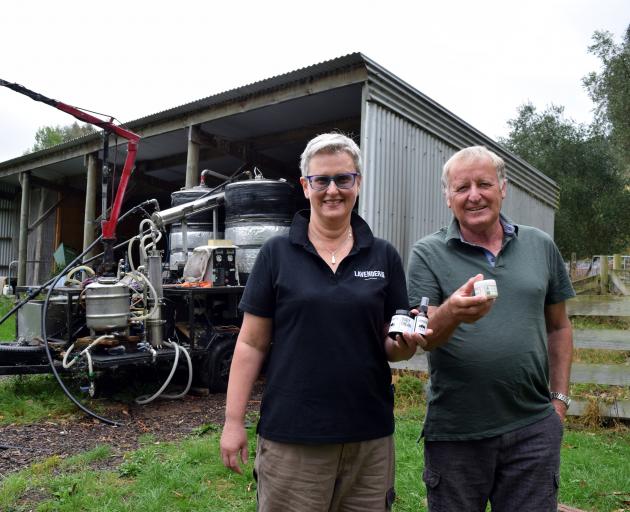
Paul Greaves had a brainstem stroke when hunting in Fiordland in 2012.
"I had a pain in the back of my neck and my left lip went numb and I fell to the ground and I was miles from anywhere on my own."
He rested and slowly recovered, then walked out. He did not seek medical attention.
A week later in Dunedin, he experienced double vision when filling his truck at a service station.
At a later date at home, he felt something was seriously wrong and was rushed to hospital.
"By that night I was equivalent to a 6-year-old baby and they were pouring drugs in me."
A stroke was diagnosed and, defying the odds, he slowly recovered. It included a stay at the ISIS Centre at Wakari Hospital.
"I should have been dead but it’s been a tough road."
At the time, he was working as a planning forester for Wenita.
"That affected me greatly — I couldn’t go back to work because I couldn’t multitask."
He left the forestry industry and focused on designing stills for his company Unwuw — an acronym playing on the statement "you know what you want".
He asked people what they wanted from their still before he started designing it to ensure it was fit for purpose.
"I do a lot of questioning before I build people a still."
Distillation systems he designed were used across New Zealand, including his patented still, which used vacuum distillation.
A "double pot" still featuring two chambers, designed and owned by Mr Greave, was parked at a lavender farm on the Taieri.
Lavender Row owner Paula Cosgrove moved from Auckland in 2017 to launch the farm on an 18ha property in Riverside, between Mosgiel and Outram.

Mr Greaves and Ms Cosgrove could both run the still.
For a fee, people could bring their own material to the farm and make essential oils.
Mr Greaves was building a smaller still on the farm to make it more affordable for clients to distil a smaller amount of material.
Ms Cosgrove said the distilling service was a way to diversify her lavender growing business.
She was investigating other aromatic crops she could grow on her farm and had contacted Plant & Food Research for ideas on suitable crops for the Taieri and the investment required.
The plan was for Mr Greaves and Ms Cosgrove to produce a range of essential oils and applied products, such as creams, and export it in unlabeled bulk lots, selling at wholesale rates to international client under the joint business venture Estate Aromatics.
It was early days for the business, he said.
"That’s our direction."
A facility they were building on the lavender farm including a shop, a certified food-grade clean room and a packing room.
Contact with potential clients had already been made in Doha, Japan, France and the United States, he said.
"If it eventually comes off, we could be quite busy."
Ms Cosgrove said it was an "exciting time" for both parties.
"We’ve come to the same place at the same time — I feel a bit fated."
When asked if he was nervous about starting a business venture selling a premium product during a global recession, Mr Greaves laughed.
"I’m 68 — I’m nervous about everything at the moment."
He said his long-term ambition was to build up Estate Aromatics, sell his share to Ms Cosgrove and then "go fly fish somewhere".














